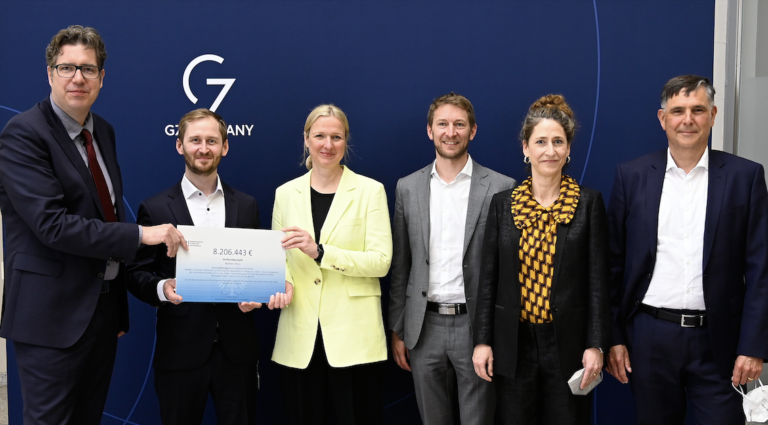Germany’s Federal Ministry for Economic Affairs and Climate Action has formally announced its Battery Pass project and its eleven consortium members, including Circulor, the leading supply chain traceability provider, as the project’s technology implementor.
The announcement marks the beginning of a three-year, German-funded R&D project to develop core data specifications and technical standards for a passport, as well as a standardised dataspace to manage batteries that are manufactured or placed into service in the European Union.
Circulor will lead one of the project’s five work packages – the Battery Pass Demonstrator work package – using content and technical standards to simulate data flows and system transactions.
The Battery Pass project, led by system change company SYSTEMIQ GmbH, comprises eleven consortium partners: acatech – Deutsche Akademie der Technikwissenschaften, BASF SE, BMW AG, Circulor GmbH, FIWARE Foundation e.V., Fraunhofer IPK, SYSTEMIQ GmbH, TWAICE Technologies GmbH, Umicore AG & Co KG, VDE Renewables GmbH (through subcontracting), and AUDI AG. As of today, associated partners include the Global Battery Alliance (GBA), GS1 Germany GmbH, Kompetenznetzwerk Lithium-Ionen-Batterien (KLiB), Mercedes-Benz AG, RWE Generation SE, SAP SE.
“Circulor is thrilled to be part of this one-of-a-kind consortium. Batteries are valuable assets and giving them an identity will be key to achieving circular economies that deliver resource security and lower emissions,” says Circulor CEO and founder Douglas Johnson-Poensgen. “We are excited to contribute our know-how to building this battery passport demonstrator.”
With Circulor’s technology, electric vehicle OEMs and supply chain participants can track the physical flow of critical materials from extraction to final production, as well as associated ESG characteristics, including embedded carbon across Scope 1 and 2 emissions, to create a dynamic picture of inherited emissions at the downstream.
Working in battery traceability since 2017, Circulor tracks critical battery materials, their GHG emissions, and ESG credentials for both upstream and downstream customers. With customers such as Volvo, Polestar and Rock Tech Lithium, Circulor helps them prove their sustainable and responsible sourcing through the creation of product passports.
Global regulations for batteries and their critical materials are growing in number and complexity. For example, the forthcoming EU Battery Regulation is expected to be passed into law in the first half of this year. It will require battery passports that clearly show the battery’s embedded CO2 emissions, compliance to ethical production standards, and a growing amount of recycled content. Today’s “Battery Pass” project announced by the German government will influence and inform the European Commission and key partners on how the technical standards and content of digital identities for batteries can be developed and managed to enable responsible, sustainable, and circular electrified economies.





